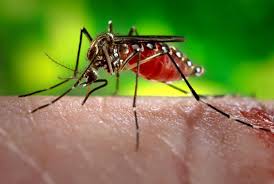The Rajasthan government Thursday challenged the US-based Centers for Disease Control and Prevention (CDC) alert advising pregnant women against travelling to the state due to the outbreak of Zika, the mosquito-borne disease.
Stressing that the advisory was not based on facts, the state government said that the situation was "totally under control".
Principal Secretary, Health, Rohit Kumar Singh chaired a meeting with senior doctors at the Health Directorate here and was told that the National Institute of Virology, Pune had conducted advance molecular studies in which it was found that the Zika virus strain in Rajasthan was not the one that causes microcephaly.
Microcephaly is a condition in which a baby's head is significantly smaller than expected, often due to abnormal brain development.
The CDC alert comes in the middle of peak tourist season-- October to March-- in Rajasthan due to the Christmas and New Year holidays in western countries.
"It was clarified in the meeting that the advice given by CDC, United States to pregnant women not to visit Zika affected Rajasthan and other states was not based on facts," the state's health department said.
"The situation in the state is totally under control and after October 28, 2018, no new Zika cases have been reported," it added.
Singh directed medical officers to keep a strict watch on the situation and ensure routine surveillance by regularly taking samples on the advice of doctors.
The first case of Zika was reported on September 21 and the number rose to 144 by October 27.
All the cases were reported from the Shastri Nagar area in Jaipur where fogging and other anti-larvae activities are being carried out to prevent the spread of the virus.
The virus, transmitted through the aedes aegypti mosquito, causes fever, skin rashes, conjunctivitis, muscle and joint pain.
In India, the first outbreak was reported in Ahmedabad, Gujarat in January 2017 and the second in Tamil Nadu's Krishnagiri district in July that year. Both these outbreaks were successfully contained through intensive surveillance and vector management.
The disease is under surveillance by the Union Health Ministry although it is no longer a Public Health Emergency of International Concern under WHO notification since November 18, 2016.
Latest India News

